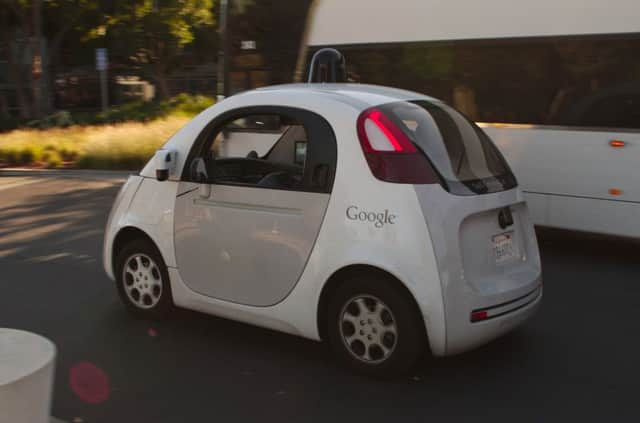Driverless cars 'will be shunned' if they crash to save pedestrians


They found drivers want vehicles to protect their occupants at all costs, even though fewer lives would be saved.
However, the French-US study, published in the journal Science, also showed that most people agreed in principle that such cars should sacrifice their passengers to prevent a greater loss of life.
Advertisement
Hide AdAdvertisement
Hide AdBecause of the conflicting responses, designers of future driverless cars find themselves in a moral maze from which there is no easy way out, the study authors from Toulouse University and Massachusetts Institute of Technology (MIT) said.
Dr Iyad Rahwan, of the MIT Media Lab in Boston, said: “Most people want to live in a world where cars will minimise casualties, but everybody wants their own car to protect them at all costs.”
Vehicles with intelligent computer software have the potential to eliminate up to 90 per cent of crashes, but the way they are programmed presents a huge ethical dilemma.
One carrying a single passenger could be designed to swerve and crash to avoid a crowd of pedestrians.
The study said that “might discourage buyers who believe their own safety should trump other considerations”.
Alternatively, the car could protect its occupant, even if it causes mass casualties.
The US researchers investigated attitudes to autonomous vehicle (AV) ethics in a series of six online surveys, in which almost 2,000 people were asked to balance self interest and public safety.
Writing in the same journal, psychologist Professor Joshua Greene, from Harvard University, said the design of ethical autonomous machines was “one of the thorniest challenges in artificial intelligence today”.
Advertisement
Hide AdAdvertisement
Hide AdHe said: “Life-and-death trade-offs are unpleasant, and no matter which ethical principles autonomous vehicles adopt, they will be open to compelling criticisms.
“Manufacturers of utilitarian cars will be criticised for their willingness to kill their own passengers. Manufacturers of cars that privilege their own passengers will be criticised for devaluing the lives of others and their willingness to cause additional deaths.”
Stuart Hay, director of Living Streets Scotland, which campaigns for pedestrians said: “How safety programmed cars cope with very busy pedestrian areas isn’t clear and will be a very challenging task.
“Problems at busy crossings in central shopping areas, where pedestrians can gain priority through sheer weight of numbers, could result in protective programming being watered down.”
Neil Greig, of motoring group IAM RoadSmart, said: “The moral dilemmas behind autonomous cars require an informed debate. The UK government seem to be rushing headlong towards their introduction in an effort to ensure our industry leads the way.
“New legislation has been promised this summer so that could be the perfect opportunity to ensure that key questions are addressed.